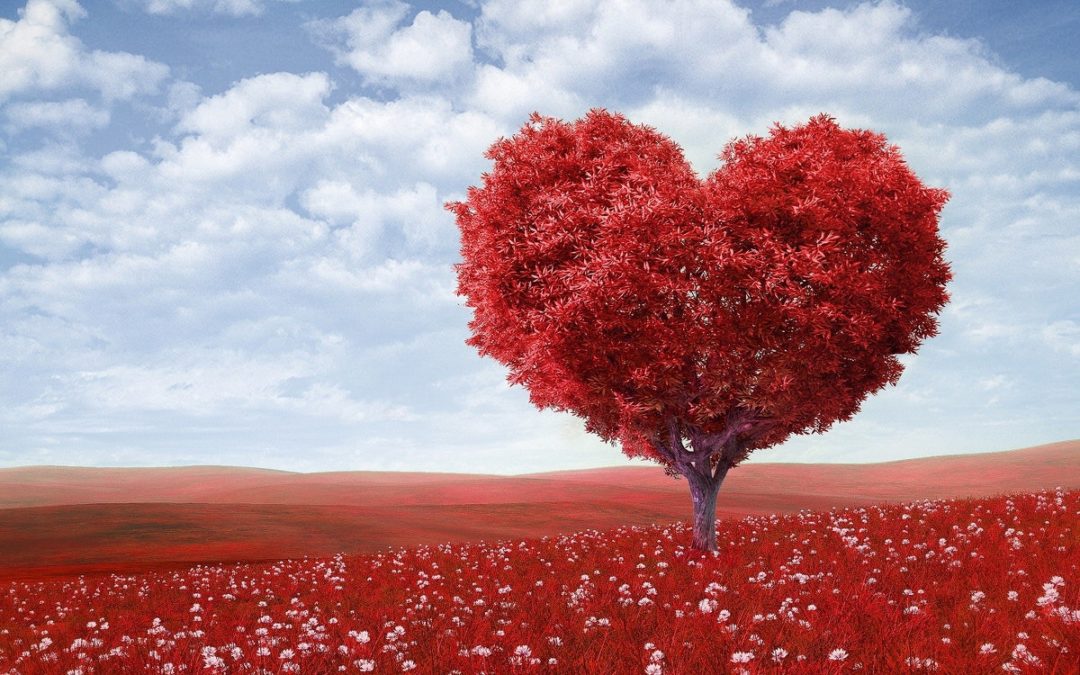The Heart – Seat of the Soul
How is your heart doing? Have you ever had a broken heart? Have you ever been scared and felt your heart beating very fast?
The heart is the seat of the soul in many cultures. Our emotions and feelings influence our hearts in different ways. Laughter, love, joy and empathy for others (this also means collaborative activities) have the most positive influence on the heart. Then our heart energy can flow freely and we feel warm and affectionate. Out of this energy, we can communicate with others on the heart level and feel deeply connected.
The heart and its functions in Traditional Chinese Medicine
In TCM the heart has many more functions than in Western medicine. Let’s look at some of the most important roles of the heart in Traditional Chinese Medicine
A healthy heart manifests in our complexion and pulse. The heart controls the blood circulation in the vessels. When the pulse is full and even and the complexion is rosy, then the person is in good health.
The heart houses the mind “Shen” and reflects all aspects of our spiritual, emotional and intellectual being. With an anchored Shen one is able to do the right thing at the right time in the right place. We will feel emotionally balanced and peaceful, have a sound sleep and a keen mind and memory. We feel alive and happy and follow with passion our path of life.
The heart opens up into the tongue and controls our language ability. A person who is well articulated, speaks at the right pace and at a normal volume, has a strong heart energy. As a result, the tongue is a normal red colour, normal size, is evenly shaped and is able to distinguish the 5 flavours.
The heart controls the blood. The heart, together with the spleen, is involved in the production of blood and pumps the blood into the circulation and supplies it to all of the organs. The blood is the root of our mind (Shen).
Sweat is the fluid of the heart. Therefore, there is a close connection between blood and body fluids. The blood is governed by the heart and is the main fluid of this organ. Sweating when feeling nervous and stressed, especially under the armpits and on the hands can indicate a heart imbalance.

Other characteristics of the heart in Traditional Chinese Medicine
Element: Fire
Direction: South
Partner organ: Small intestine
Climate: Summer (heat)
Colour: Red
Emotion: Joy, inner harmony
Taste: Bitter
Smell: Scorched
Body tissue: Blood vessels
Sound of the voice: Laughing
Day time: 11am – 1pm
Symptoms of a heart imbalance
The heart is also called the emperor of the body. Together with the kidneys, the heart determines the state of our constitution. The heart influences the state of our emotions, mental activity, thinking, memory, sleep and consciousness. If out of balance, it can lead to numerous problems.
It can lead to emotional imbalances like:
Restlessness, emotional coldness, exaggerated joy and enthusiasm, low self-esteem, constant laughter, no humour, forgetfulness, anxiety, insecurity, manic depression, lack of self-love, hardening of the arteries, palpitations, thrombosis, red or pale complexion, excitability, talking a lot or no wish to talk, oppression, frigidity, tongue ulcers, speech difficulty, stuttering, speech impairments, nervousness, concentration and memory disorders;
It can lead to physical imbalances:
Spontaneous sweating, night sweating, hot flashes, low or high blood pressure, dizziness, fears, problems to fall asleep, disturbed sleep or insomnia, excessive dreaming, aversion to heat, hardening of the arteries (arteriosclerosis), heart and vascular diseases, thrombosis, heart attack, irregular pulse, twitching, mania;
Acupressure for the heart meridian
The heart meridian arises from the heart, then passes internally through the diaphragm and connects to the small intestine. A branch runs from the heart to the throat and to the eyes. Another branch penetrates from the heart into the lungs and comes to the surface in the armpit. There it connects with the external heart meridian who runs on the ulnar side of both arms to the ulnar side of the tip of the little finger. You can stimulate points along this meridian by gentle pressure with your thumb or index finger.
Most important acupressure points of the heart meridian
Acupressure is closely linked to acupuncture. However, no needles are set here, but certain points of the skin are activated by gentle pressure. This helps to relieve pain and other physical ailments, reduce stress and support reducing symptoms. Therefore, acupressure is suitable for self-treatment.
Click on the following link to find the exact location of the points below:
Heart 1 – jiquan
- clears empty heat
- calms the mind
- opens the thorax
- removes blockages from the channel
Indications
Heart and chest pain, distention and fullness of hypochondrium, pain in the axilla, palpitations, anxiety, sadness, dry throat, heartache, pain and tension in the flanks, inability to raise the shoulder;
Heart 3 – shaohai
- calms the mind
- drains heart fire
- clears heart empty heat
- removes obstructions from the channel
Indications
Anxiety, mental restlessness, difficulty falling asleep, sleep disturbances with sweating, heartache, inappropriate laughter, red eyes, severe depression;
Heart 4 – lingdao
- nourishes the heart and calms the mind
- strengthens the voice
- relaxes the sinews of the elbow and arm
Indications
Loss of voice, redness and swelling of the eyes, sadness, fear, anxiety, mental restlessness, nausea, pain and obstruction along the heart and small intestine channel;
Heart 5 – Tongli
- main point for tonifying heart-Q
- regulates the heart rhythm
- calms the mind
- benefits the tongue
- regulates uterus
- benefits the bladder
- benefits head and eyes
Indications
Excessive menstrual bleeding, loss of voice, stiff tongue, palpations, stuttering, red eyes, eye pain, red face, headache, dizziness, speechlessness, sadness, mental restlessness, anger, fright, agitation, enuresis;
Heart 6 – yinxi
- clears empty heart heat
- calms the shen
- nourishes heart yin
- invigorates heart blood
Indications
Night sweats, dry mouth, heart pain, stabbing in the chest, nose bleeding, palpations, jumpiness, insomnia, mental restlessness, vomiting of blood;
In combination with kidney 7 it can stop night sweating from heart yin deficiency.
Heart 7 – shenmen
- calms the mind
- nourishes heart blood
- clears heart heat
Indications
Amenorrhoea, scanty periods, mental retardation in children, anxiety, memory loss, impotence in men, lack of sexual desire in women, stops itching in skin diseases, stiffness of the back, arm tremors, contraction of the arm, insomnia, poor memory, agitation, shouting, palpitations, irritability, indifference, depression.
Heart 8 – shaofu
- drains fire from the heart and small intestine
- regulates heart Qi from liver Qi stagnation
- calms the shen and strengthens heart
- regulates uterus
- lifts sinking Qi
Indications
Itching of genitals, prolapse of uterus, difficult urination, enuresis, excessive dreaming, psychosis, worry, sadness, agitation, mental restlessness, palpitations, bad breath, bitter mouth taste, swollen tongue, eye pain, red eyes, loss of consciousness, thirst, feeling of heat, chest pain;
Heart 9 – shaochong
- clears heat
- benefits the tongue and eyes
- extinguishes wind
- regulates Qi in the thorax
- calms the mind
- enhances resuscitation
- extinguishes internal wind
Indications
Loss of consciousness, red and painful eyes, swollen tongue, palpitations, heart pain, agitation, prevents fainting, severe anxiety, fullness in the heart region, pain at the root of the tongue, manic depression, sadness, mental restlessness;
Relationships of the heart to other organs in Traditional Chinese Medicine
Heart and spleen: The spleen is the basis for producing blood. In addition, spleen weakness can also cause mucus accumulation in the heart area.
Heart and lungs: These two organs form the upper heater and are both of dynamic character. The lungs rules the Qi, the heart moves the blood.
Heart and kidney: These two organs represent elementary opposites like above and below; Fire (heart) and water (kidney);
Heart and liver: These two have a close connection on the blood and psychological level. The heart is the origin of emotions and regulates the flow of blood whereas the liver is responsible for a smooth flow of emotions, Qi and blood.
How would it feel to free yourself from your symptoms? Ready to change and invest time and energy to get to the root of your problem? Then book your session now. I am looking forward to meeting you.


